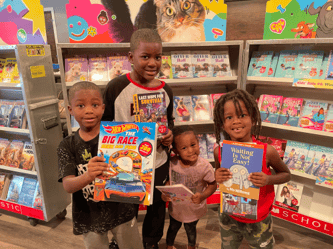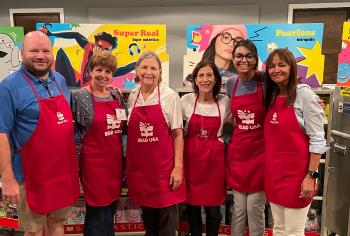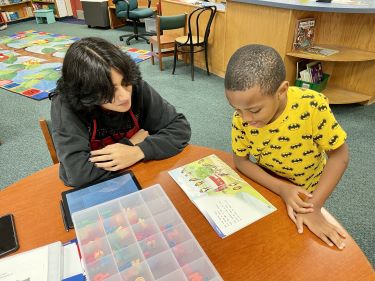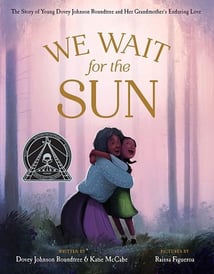This Week at READ USA
Season of Growth: READ USA Book Fairs Start Next Month!
- Read USA Inc.
- March 15 2023
Spring, the season of blooms, growth, and new beginnings, starts on Monday – but what the team at READ USA is most excited about is the start of BOOK FAIR season!
READ USA Book Fairs are also a season of growth: during our Book Fairs, held annually at ALL elementary schools across Duval County during April-May, students choose their own FREE books to take home to read and enjoy, and explore their own personal growth through literacy.
Volunteers are vital to the success of the Book Fairs – and NOW is the time to sign up!
At READ USA Book Fairs, volunteers help with everything from set-up to tear-down, to helping young minds choose their favorite books, to helping ensure everything runs as smoothly as possible.
Join us for a day – or days! – of inspiration and fun at the READ USA Book Fairs!
If you have ever seen a child’s excitement and gratitude when they receive their very own FREE books – some of them for the first time in their lives – then you know the power and inspiration behind book choice and ownership and giving students the opportunity to create their own future!
Apply here today!


Last Call: $25/hour Opportunity as Tutor Assessor
LAST CALL for this $25/hour opportunity!
READ USA is seeking Assessors for our Literacy Tutoring program. Assessors are vital to the Literacy Tutoring program and are responsible for administering assessments and reporting data for elementary students using standardized and evidence-based measures. Assessors:
- Receive $25/hour.
- Receive paid (mandatory) training with supporting materials at the Schultz Center. Training dates are:
- March 27, 4:30-7:30 p.m.
- March 31, 10 a.m.-2 p.m.
- Must have a bachelor’s degree or higher.
- Must participate in a background check and fingerprinting (a requirement for working in the schools).
Assessments begin NEXT MONTH! Apply here today. Feel free to also forward this email to anyone you think might be interested.

_large.jpg?width=375&height=281&name=pic%202%20(1)_large.jpg)
Children’s Book: We Wait for the Sun, by Dovey Johnson Roundtree and Katie McCabe
Illustrated by Raissa Figueroa
Little Dovey Mae remembers a time when she ventured into the deep dark forest, full of sounds and shadows, and under the shield of her strong and fierce grandmother. As Dovey and her grandma look for the largest, juiciest berries to pick they depart on an adventure of a lifetime while never leaving the forest. Grandma senses little Dovey’s fear, and she makes up a fantastical story, bringing nature and daybreak to life as they “wait for the sun.” The forest turns magical, and berry picking becomes an enthralling adventure that Dovey never forgets.
Dovey Johnson Roundtree would go on to become a pioneer of the civil rights movement. Along the way, she brought the joy and guidance of her grandma – the matriarch and force of her family – as Dovey’s guiding light. Dovey reflected on the happiness of her childhood even as she fought for justice and equality in the courtroom, the church, and even the miliary.
Cozy, shimmering illustrations brighten the pages of We Wait for the Sun and encourage readers to see magnificence in every bit of darkness.
Submitted by Tabetha Cox, Tutoring Program Director
Parent Education Corner: The Importance of Nurturing Young Learners
A lot is happening in the lives of three- and four-year-old learners. In just a few short years, they have learned to walk, hold things, manipulate objects such as a fork and a cup, they’re learning to draw and write, they notice patterns with conversations and try to join in. In addition, they learn to share and express emotions, and elicit responses from others. They even plead for and begin to argue to gain something they want. Most of the learning they’ve done so far hasn’t been from direct instruction by a teacher, but rather, through observing and experimenting with their environment. They’ll learn just the right way to satisfy their need, and how far is too far?
The most important take away here is the importance of language. Everything “action” – how they play, how they communicate their needs, how they signify that it’s time to rest, etc. – this all begins with language. Language and play are the greatest tools for an early learner. Just as we discussed last week, play is essential to learning!
As a parent, you can help your little one develop their toolbox.
- Encourage your child to react to stories.
- Talk about what your child notices in nature.
- Help your child initiate dramatic play with friends (house, school, acting out a fairytale).
- Genuinely react to conversations and give your child something else to think about.
- Help your child learn the “rules” of conversation: listen, speak, ask questions, wait for a pause (take a turn to talk without interrupting).
- Help your child use manners: please, thank you, excuse me.
- Exchange screen time for book exploration, a walk around the block, drawing and writing, or a conversation about something interesting.
- Don’t compare your child to others. All children develop at a different pace and enter school with their own unique toolbox.
- Take your child’s progress day by day. Each day you work together to learn social rules and language rules, your child will become more familiar with language and play.
Do you have any questions or ideas for the Parent Education Corner? Anything you’d like to learn? Let us know here!
